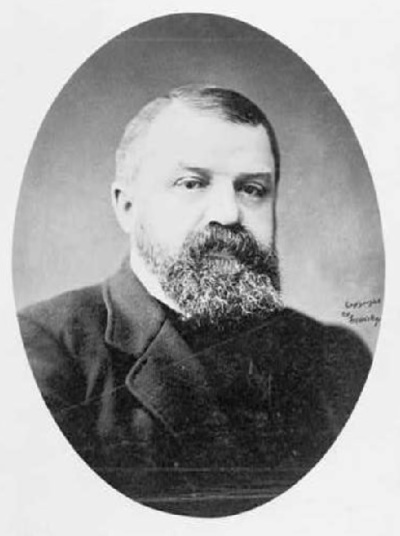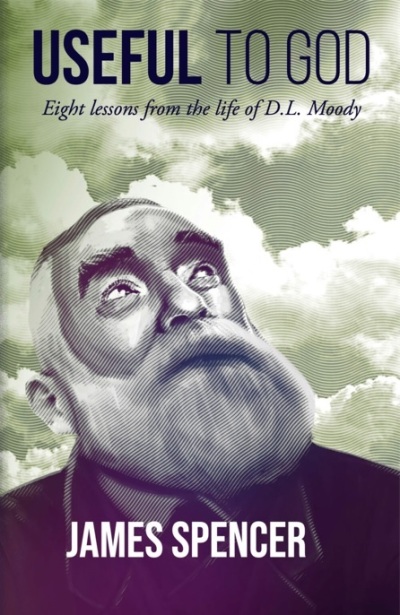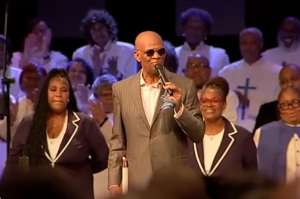8 lessons for Christian living from 19th century preacher D.L. Moody

A new book examines the important lessons Christians can learn from the life and teachings of one of the most important American evangelists of the 19th century.
Dwight L. Moody (1837-1899) was an influential preacher, having spoken to millions, founded multiple schools, and having played a leading role in the Sunday School movement.
Theologian and D. L. Moody Center President James Spencer has written a book titled, Useful to God: Eight Lessons from the Life of D. L. Moody, which was released on March 2.
These lessons, each having its own chapter in the book, include: being humble, studious, surrendered, prayerful, undistracted, “free from the love of money,” “imbued with power from on high,” and being “consumed with a passion for the lost.”
In the introduction, Spencer recounted that he was inspired to write the book in 2018 after he had seriously considered leaving ministry work due to burnout.
Spencer recalled joining the Moody Center at the time and being inspired as he read through the private and public works of the 19th century evangelist.
“God continues to use Moody’s story,” wrote Spencer. “My hope is that in considering why God used D. L. Moody, you will be inspired, as I am, to show the world what God can do through an individual who is totally surrendered to him.”
In an interview with The Christian Post, Spencer spoke about his book, focusing on issues including the lessons Spencer himself has struggled with, the importance of learning about Moody, and how Moody would likely approach the modern debate over social justice. The following is an edited transcript of that interview.
CP: In the Introduction, you wrote that as you studied Moody's life, "I realized I had been too independent, too willing to tie God to my own agendas, and too focused on achievement." Do you believe this is a common problem among Christians who try to undertake ministry work?

Spencer: Yeah, I do. I think part of it is just the way we’re sort of brought up today. We’re encouraged to be very independent, we’re encouraged to be ambitious, and we’re encouraged to pull ourselves up by our own bootstraps.
I don’t think it’s uncommon among Christian ministers, and it definitely wasn’t an uncommon problem for me.
CP: When introducing the life of Moody in Chapter 1, you wrote that while Moody "is not mentioned in scripture," it was still important to learn about his "life and ministry." Do you believe American Christians need to learn more about past Christian figures that postdate the first century, be it Moody or other notable Christian evangelists?
Spencer: As I studied Moody, what I realized was that a lot of the problems that we’re dealing with today, really originated in history.
Moody lived through times like the Civil War, he went through Reconstruction, segregation. He also lived through a very challenging time of industrialization, urbanization and immigration.
I think that not looking at these characters, Moody and others, who walked faithfully through those times — not perfectly through those times, but faithfully through those times — is really a detriment to us. I think we benefit greatly by understanding how they navigated these situations and really diving into that history a little more deeply.
CP: Of the lessons you discussed in the book, have there been one or two of them that you have personally struggled in applying to your life?
Spencer: Definitely surrender. And I think that’s fairly common.
One of the things Moody talks about is actually the struggle he had with surrendering his ambitions and really following after the Lord. And so I think that one is for me, the most difficult one. How do we know which ambitions are our own and which ones are coming from the Lord and how do we then surrender, set those aside, so that we’re really following His agenda?
So I think it’s a multi-layered problem. It’s not only just that I am a little bit interested in following my own path, but it is also about figuring out where God will want me to go. I think surrender is definitely one that I have had challenges with.
I think the other one is prayer. Prayer has been an area of growth for me as I wrote the book, as I studied Moody. I think as an academic, while I would incorporate prayer into my academic studies, it never really hit home to me the way that it has been lately.
Prayer was another one of those where I really struggled with.
CP: In the chapter talking about the need to be studious, you wrote that while it's "possible to think of God's law, or even the Old Testament as a whole, as strange, unnecessary, or outdated ... such a perspective prevents us from knowing God more deeply." In what ways does the Old Testament help us know God more deeply?

Spencer: What I found is that the Old Testament really does give us insights into what God’s intention was.
God is a sovereign, wise and benevolent God, Who creates a world intended for human flourishing. And then, of course, with the fall, that all begins to unravel. Ultimately, the Old Testament is the revelation of God. It gives us insight into how we can live in the presence of the Lord.
The Old Testament forms a crucial background even in understanding Christ and the New Testament. I think my line there was really intended to react to some pastors and other theologians who have been advocating to leave the Old Testament aside. And I definitely think that, just like we talked about with history, leaving the history of God by the wayside, not studying it, not thinking about it, not considering it as part of our spirituality, would be a real loss.
CP: In one chapter, you described the model of humility that Moody showcased in life, which included doing things like not having his photo included in news stories about his preaching or even with his books. What do you believe are some small steps that modern-day preachers and pastors can take to convey humility in their public careers?
Spencer: I think one of the big ones is not speaking to issues that we don’t understand. I think many times what we see with celebrity preachers or more popular theologians, is that they speak from an unstudied standpoint, and I think that’s due to their celebrity. They’re trying to be a spokesperson. I think they are trying to help; I think it comes from a good place. But ultimately, it is a little bit less than humble to speak on issues that we really don’t fully understand, we haven’t taken the time to research and consider ourselves.
I think the way that we exercise humility is by exercising restraint on what we talk about, when we talk about it, and who we talk about it to. I think that has to go into the calculations of more public pastors and public theologians, so that we’re not putting ourselves in positions where we’re going to say something that is a little less than helpful to the Body of Christ.
CP: In your discussion about Moody and social concerns, you wrote that although Moody "tended to focus on individual sin rather than societal concerns, he also knew that the problem of individual sin was not the only problem humanity faced. The problems of society also called for reform." As you may know, in evangelical circles, there has been some debate over the concept of "social justice" and whether social justice is compatible with Christian teaching. How do you believe Moody would have responded to this debate?
Spencer: I’d love to think that D. L. Moody would have pointed to James’ definition of “pure and undefiled religion,” which involves two things: remaining unstained for the world, but also visiting widows and orphans in their affliction.
I think Moody didn’t see the proclamation of the Gospel as something that you do in word only. He saw it as something that you did in deed and in truth. That the Gospel should transform the way that we interact with the world.
Where I think he starts to draw an interesting line is in how Christians interact from a governmental perspective. He wants Christians to embody that pure and undefiled religion, as a unified body, caring for the poor, having compassion for people, really diving into and creating communities that express Christian unity.
But … I know he wasn’t as interested in Christians participating in the political realm. I don’t think he would have been wholly against it, but there are a few times in his writings where he laments it. He laments the distraction that comes from things as basic as women’s suffrage. He detaches from the [Prohibition] movement early on because he just feels like it is distracting him and others from the work of the Gospel.
I think Moody wanted a more purely theological engagement, a more purely churched engagement with society in that way. But he definitely would have pointed to James and said, “Listen, we get to do both. As Christians, we don’t just proclaim the Gospel, we also demonstrate the Gospel through the way that we love God and love others.”
CP: What do you hope readers take away from your book?
Spencer: The basic thing I hope they come away with is just the conviction that we need these characteristics to be developed within the Body of Christ. If God used D.L. Moody in this way, and this is why God used D.L. Moody because he had some of these characteristics, and because he committed himself to developing these characteristics, surely we need these characteristics today just as much as he needed them then.
Secondarily, I’d really love for people to find insight and wisdom in the work of D.L. Moody. He’s written multiple books, he’s got some great stuff. For a guy who was not a theologian, he really understood how to speak about the faith in a way that was accessible and authentic and genuine and really gives some excellent insights into what the Christian life might look like.
And then, thirdly … a desire to dig deeper into the Scriptures. So I included a lot of biblical reflections within the book, in the hope that people would then dive into the Bible and really hear from God directly, as opposed to indirectly through the book.




























